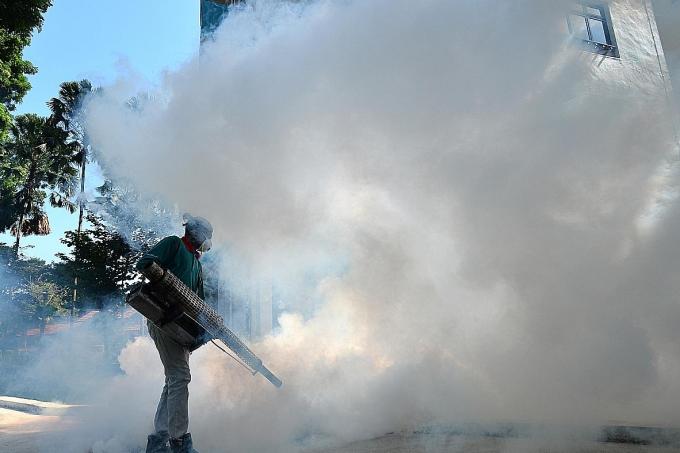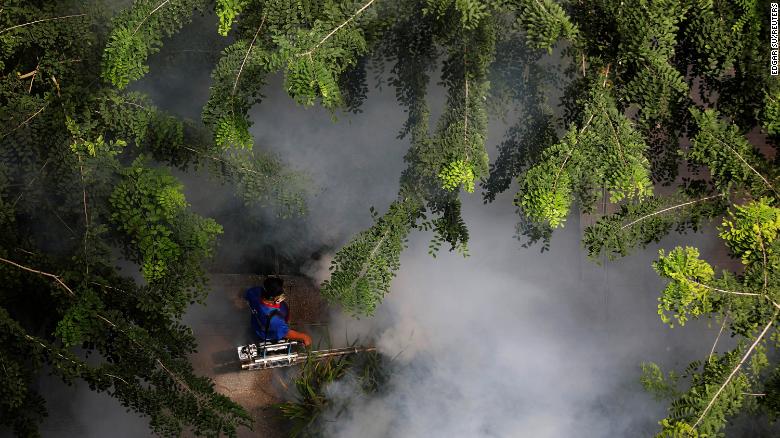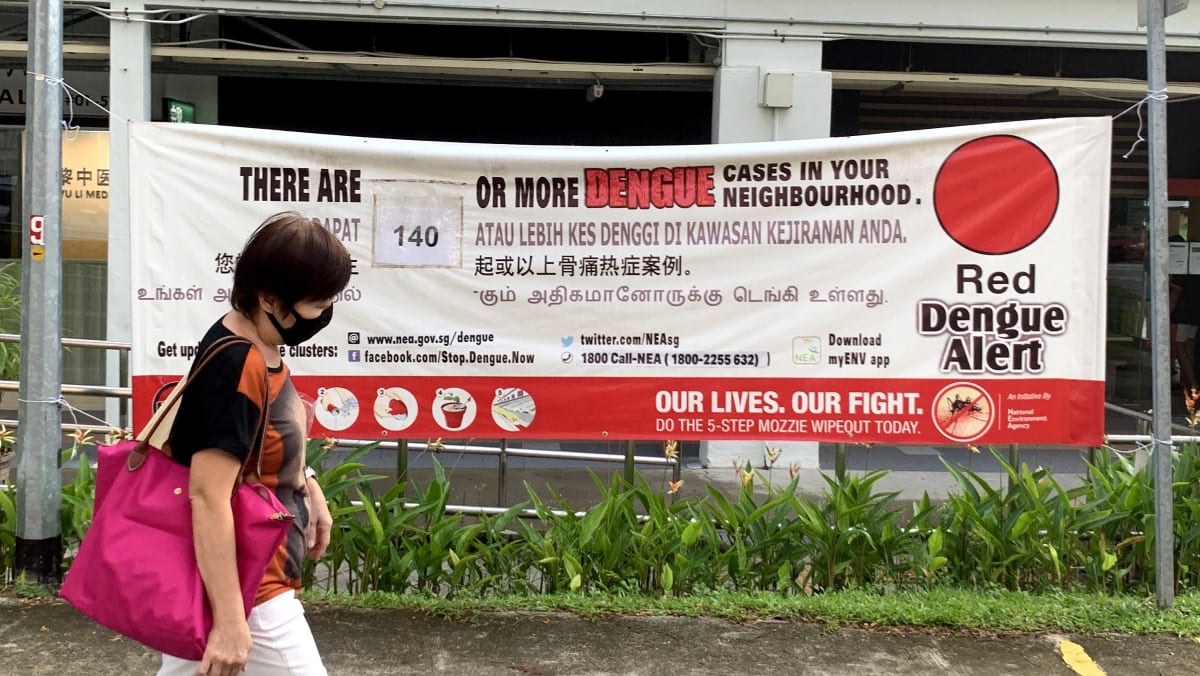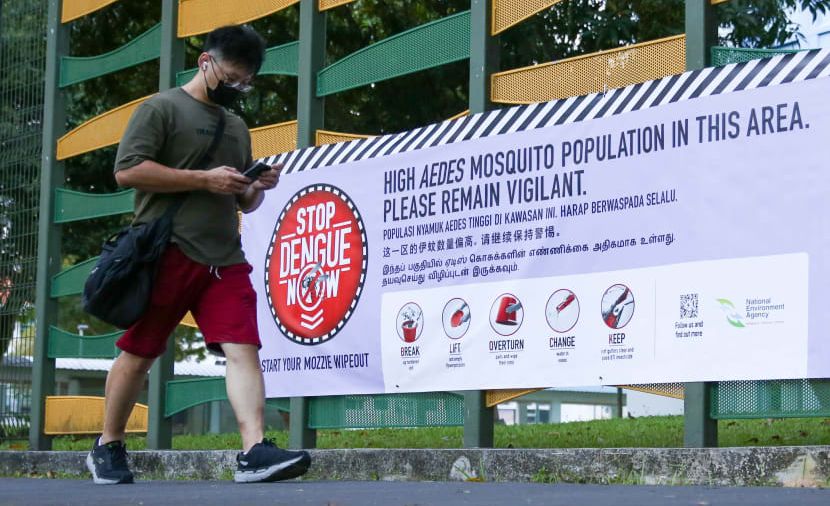Add another side effect of climate change to the list of unwelcome things that we can look forward to as the planet continues to warm.
You may not have picked up on the news, but Malaysia’s southern neighbour is sounding the alarm over its latest outbreak – not of Covid-19 this time, but of a worrying proliferation of dengue cases.
It’s a seasonal disease all too well-known here in Malaysia, as well, but Singapore’s outbreak has already exceeded 11,600 cases, and we’re not even into the traditional “peak dengue season” period. For reference, the total case count for dengue in all of 2021 in Singapore was 5,258.

According to CNN Asia, experts are warning that it’s a troubling figure not only for Singapore – whose tropical climate is, like Malaysia’s, a natural breeding ground for the Aedes mosquitoes that carry the virus – but also for the rest of the world. That’s because continued changes in the global climate mean such outbreaks are likely to become more common and widespread in the coming years.
DISEASE OF THE TROPICS
As some readers have no doubt discovered on their own, dengue – though considered endemic in countries like Singapore and Malaysia – is neither a pleasant experience nor an easy disease to treat. It causes flu-like symptoms such as high fever, severe headaches, and body pains. In serious and extreme cases, bleeding, breathing difficulties, organ failure, and even death can occur.
Last year in Malaysia, only 20 dengue deaths were recorded, down from 145 deaths in 2020 and the country’s lowest figure in a decade. The cases also dropped precipitously, plunging nearly 71% from over 90,300 cases in 2020 to just 26,365 cases last year. Based on accumulated data, Malaysia sees a surge in dengue cases every four to five years, with notable increases logged here in 2010, 2015, and 2019. If Singapore’s current outbreak is a bellwether for the region, however, the next big spike in Malaysia – which ordinarily wouldn’t be expected until 2024 or even 2025 – could come sooner.

“[Cases] are definitely rising faster,” said Singapore’s Minister for Home Affairs Desmond Tan on the sidelines of a neighborhood inspection for dengue mosquitoes. “It’s an urgent emergency phase now that we have to deal with.”
The ongoing outbreak in Singapore has been made worse by recent hotter-than-usual weather, experts say, and the problem could be a harbinger of what is to come elsewhere as more countries in the region experience prolonged hot spells and pockets of brief thundershowers that do little to cool the oppressive heat of the day, but much to help to spread both the mosquitoes and the virus they carry.
“The disease is now endemic in more than 100 countries,” the World Health Organization (WHO) said in a global dengue report in January 2022, noting that cases had increased “30-fold in the last 50 years.”
The report rather ominously added, “Not only is the number of cases increasing as the disease spreads to new areas, but explosive outbreaks are occurring.”

Despite spending tens of millions of dollars each year trying to keep mosquito populations down through widespread fogging efforts (which some experts have contended are not especially effective), public awareness campaigns, and even novel experiments using special lab-bred mosquitoes, government agencies in Singapore are continuing to report concerning rises in dengue infections and mosquito clusters.
“Singapore is currently facing a serious dengue situation,” the country’s National Environmental Agency told CNN, citing the “recent warm, rainy, and humid weather” as a big contributing factor to the surge. Dengue cases continue to rise sharply and are expected to remain high in the months ahead, the agency added.
HOTTER DAYS AND WARMER NIGHTS
Singapore’s 2022 dengue surge is indeed the result of factors like the recent hot, wet weather, but also a new dominant virus strain, said Ruklanthi de Alwis, a senior research fellow at the Duke-NUS Medical School and an expert in emerging infectious diseases.
Climate change, however, will likely make things worse, she explained. “Past predictive modelling studies have shown that global warming due to climate change will eventually expand the geographical areas in which mosquitoes thrive, as well as the length of dengue transmission seasons.”
Singapore is heavily urbanised, densely populated, and very, very tropical – the trifecta for the “heat island” effect experienced by many major cities. Kuala Lumpur experiences this phenomenon, too, but Singapore is unique in that it’s nearly on the equator and is also a country unto itself, so the data tends to be both more prolific and more complete.

The Meteorological Service Singapore says that their country is heating up twice as fast as the rest of the world. Maximum daily temperatures could reach 37°C by the year 2100 if carbon emissions continue to rise, its weather scientists have warned.
It may not even take that long, if trends continue. Temperatures in Singapore recently hit a record high of 36.7°C for May amid sweltering levels of humidity. Unfortunately, soaring temperatures are expected to become the norm, according to weather and climate scientist Koh Tieh Yong from the Singapore University of Social Sciences. “The past decade has been very warm,” he explained. “We now experience about 12 more warm days and 12 more warm nights (compared to) 50 years ago.”
As climate change worsens and the planet heats up, mosquito-borne diseases like Zika, chikungunya, and dengue will likely continue to spread and have an ever greater impact on human health and well being, according to experts quoted by CNN.

The important question for societies going forward, of course, is whether politicians and policy-makers – the ones who will need to direct the necessary changes to both slow climate change and prepare for its inevitable consequences – will see the impact of climate change-fuelled, mosquito-borne diseases on human health and act on what they see.
"ExpatGo welcomes and encourages comments, input, and divergent opinions. However, we kindly request that you use suitable language in your comments, and refrain from any sort of personal attack, hate speech, or disparaging rhetoric. Comments not in line with this are subject to removal from the site. "























